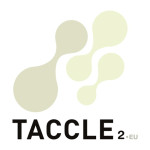You can use podcasting or slidecasting as a way to create and share patterns. Use random.org or similar to generate a list of at least 20 random numbers, use one number per slide and create a presentation, be creative! Add music and upload the results to youtube or vimeo or slideshare. You can do the Full Article…
The Human Race
Age: 12+ yrs Overview: By investigating the most current scientific material regarding human evolution, learners are asked to use their researching, predictive and reporting skills to create a simple web-based thesis on the ‘likely’ future stages of human evolution. Description: The teacher must decide how much initial information to provide, but it’s probably a good Full Article…
The Marvels of Comic Life
We have mentioned Comic Life in several other posts but we think it is an absolute basic in a primary teacher toolkit. For us, the biggest attractions of using something like Comic Life are that: Children who are not very artistic or find difficulty in writing love being able to produce a piece of work Full Article…
Science Comics
We all know how much children like doing hands-on science and finding out for themselves how things work. Sadly, we also know that writing up their experiments according to very rigid criteria is guaranteed to dampen their natural curiosity and turn science into a chore. Nic has come up with a novel way of recording Full Article…
Great e-learning teacher blog!
Have just come across an amazing website for teachers http://sharpjacqui.blogspot.fr/p/about-me.html. In fact, it’s not one website but a whole series of blogs by Jaqui Sharp, who is heavily involved in Taccle-type stuff in New Zealand. Have just written to her to see if we can link up. They are very content-rich, bursting with ideas and written Full Article…





 English
English Nederlands
Nederlands Deutsch
Deutsch Italiano
Italiano Español
Español Português
Português Română
Română Cymraeg
Cymraeg